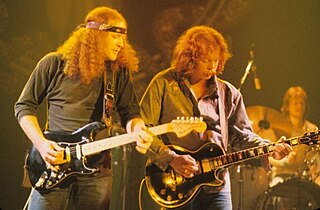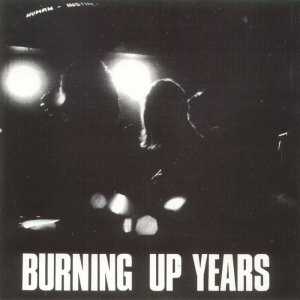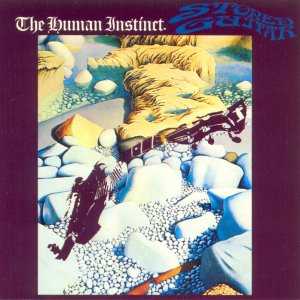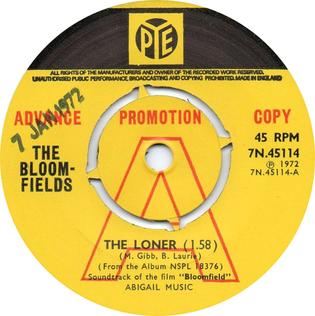History
Early history: psychedelic pop (1966–1968)
The band emerged from a 1950s pop band The Four Fours, formed in Tauranga in 1958 by drummer Trevor Spitz. Lead guitarist Bill Ward joined in 1959, former police cadet Dave Hartstone became rhythm guitarist in 1960, and Frank Hay was enlisted on bass. The foursome rapidly became one of the most sought-after bands in the country.
In mid-1966 Maurice Greer, then fronting his own band The Saints, was invited to audition. He had his first group at the age of 14 and was billed as "the teenage wonder drummer". In 1964 he began experimenting with his drum kit, converting it into a stand up-unit, which he claimed was better for his vocals. As well as his drumming ability, the Four Fours were impressed with his ability to harmonise and hit high notes, talents valued by chart-topping bands of the time. He joined just in time to record their biggest hit "Go Go"/"Don’t Print My Memoirs".
The band, featuring Maurice Greer as vocalist and stand-up drummer, toured as support band for The Rolling Stones' 1966 New Zealand tour and sailed to the UK in August, changing their name en route to the Human Instinct.
The band won a recording deal with Mercury Records in 1967, releasing "Rich Man" (which New Musical Express described as a "pounding up-tempo piece with ear catching lyrics and some weird sounds"), "Can’t Stop Loving You", and a re-recording of the Four Fours' "Go Go". The band then signed with Deram Records to record "A Day in My Mind's Mind", described 30 years later by English critic Jon Savage as "a blurring of the real and fantastic, aurally reproduced by untuned raga-style guitars and a few voices".
Greer declined an offer to join the Jeff Beck Group, opting instead to return to New Zealand in September 1968 as the band disintegrated.
Peak of popularity: acid rock and blues rock (1969–1971)
Palmerston North-born Greer sought a heavier rock sound with his band’s new three-piece lineup back in New Zealand: he had enlisted guitarist and old high school friend Billy Te Kahika (who used the name Billy TK) and bassist Peter Barton.
The Human Instinct secured a role as resident band at Auckland’s Bo Peep Club, then abandoned the gig to return to Britain in February 1969, where they invested in a massive PA and lighting system. They remained there for three months, during which time they met New Zealand guitarist Jesse Harper (real name Doug Jerebine). Human Instinct would record several Harper compositions for their first two albums.
Burning Up Years (1969)
On their return to New Zealand, Greer was signed by Pye Records and entered Peach-Weymes Auckland ASTOR Studios to record their first blues-based album, Burning Up Years , which was released in late 1969. Three of the album’s seven songs were Harper compositions. (The single, "I Think I’ll Go Back Home", was a blues version of Neil Young's "Everybody Knows This Is Nowhere", but wrongly credited to Harper.)
During recording Barton was replaced on bass by Larry Waide.
Burning Up Years was recorded and mixed by staff engineers Gary Potts and Wahanui Wynyard.
Stoned Guitar
In June 1970 the band began work on their second album, Stoned Guitar , after which Waide was replaced by former Underdogs bassist Neil Edwards. The band began work on their third album, Pins in It , which was released in June 1971.
The band flew to Sydney for a three-month tour, after which TK quit the band to remain in Australia. His place was taken by keyboardist Graeme Collins, formerly of Dedikation and in 1972 of Dragon.
Country rock
In 1972 Greer changed the lineup again, enlisting guitarists Martin Hope (Fourmyula) and John Donoghue (Timberjack) and Glenn Mikkelson (a.k.a. Zaine Griff), who played bass in the band and also did vocals in some songs for a new country rock sound. The band released two more albums, 1972's Snatmin Cuthin? (an anagram of the band's name) and The Hustler (1974). A series of lineup changes took place before Greer ended the band in 1982.
A further album, Peg Leg , was belatedly released in 2001, produced from sessions originally recorded in late 1975.
End of hiatus (2000s)
Greer reformed the band in 2002 for a series of performances.
In July 2007 the Human Instinct travelled to South Korea to play on the main stage at the Pentaport Rock Festival.
In July 2009 they returned to South Korea to play on the main stage at the Jisan Valley Rock Festival.
In 2010 a new album, Midnight Sun, was released, with Maurice Greer on drums/vocals, Neil Edwards on bass and Joel Haines on guitar. There are guest appearances on the album by Billy TK, Eddie Rayner and Murray Grindlay. A box set was also released containing the three albums recorded for Zodiac Records: Snatmin Cuthin?, The Hustler, and Peg Leg.

Maurice Ernest Gibb was a British musician and songwriter. He achieved worldwide fame as a member of the pop group Bee Gees. Although his elder brother Barry Gibb and fraternal twin brother Robin Gibb were the group's main lead singers, most of their albums included at least one or two songs featuring Maurice's lead vocals, including "Lay It on Me", "Country Woman" and "On Time". The Bee Gees are one of the most successful pop-rock groups of all time.

The Steve Miller Band is an American rock band formed in San Francisco, California in 1966. The band is led by Steve Miller on guitar and lead vocals. The group had a string of mid- to late-1970s hit singles that are staples of classic rock radio, as well as several earlier psychedelic rock albums. Miller left his first band to move to San Francisco and form the Steve Miller Blues Band. Shortly after Harvey Kornspan negotiated the band's contract with Capitol Records in 1967, the band shortened its name to the Steve Miller Band. In February 1968, the band recorded its debut album, Children of the Future. It went on to produce the albums Sailor, Brave New World, Your Saving Grace, Number 5, The Joker, Fly Like an Eagle, and Book of Dreams, among others. The band's album Greatest Hits 1974–78, released in 1978, has sold over 13 million copies. In 2016, Steve Miller was inducted as a solo artist in the Rock and Roll Hall of Fame.
The Tornados were an English instrumental rock group of the 1960s that acted as backing group for many of record producer Joe Meek's productions and also for singer Billy Fury. They enjoyed several chart hits in their own right, including the UK and US no. 1 "Telstar", the first US no. 1 single by a British group.

Outlaws is an American Southern rock band from Tampa, Florida. They are best known for their 1975 hit "There Goes Another Love Song" and extended guitar jam "Green Grass and High Tides" from their 1975 debut album, plus their 1980 cover of the Stan Jones classic "(Ghost) Riders in the Sky".
The Wild Cherries were an Australian rock group, which started in late 1964 playing R&B/jazz and became "the most relentlessly experimental psychedelic band on the Melbourne discotheque / dance scene" according to commentator, Glenn A. Baker.
Giles, Giles and Fripp were an English rock group, formed in Bournemouth, Dorset in August 1967. It featured brothers Michael Giles on drums and vocals and Peter Giles on bass guitar and vocals, and Robert Fripp on guitar. The band's music showed an eclectic mix of pop, psychedelic rock, folk, jazz, and classical influences. The group eventually evolved into pioneering progressive rock band King Crimson.
Wiremu Te Kahika, better known as Billy Te Kahika or Billy TK Senior, is a New Zealand Māori musician, guitarist, vocalist and songwriter.
Black Widow were an English rock band that formed in Leicester in September 1969. They were mostly known for their early use of Satanic and occult imagery in their music and stage act.

Chicken Shack are a British blues band, founded in the mid-1960s by Stan Webb, Andy Silvester, and Alan Morley (drums), who were later joined by Christine Perfect in 1967. Chicken Shack has performed with various line-ups, Stan Webb being the only constant member.

The La De Da's were a New Zealand rock band from 1963 to 1975. They were formed as a mod-ish group, the Mergers, in Te Atatū, by long-term members Kevin Borich on lead guitar and vocals, Phil Key on lead vocals and guitar and Trevor Wilson on bass guitar. In mid-1968 they relocated to Australia. Their popular singles in New Zealand were "How Is the Air Up There?", "On Top of the World", "Hey! Baby", "All Purpose Low" and "Rosalie", while their hits on Australia's Go-Set National Top 40 were "Gonna See My Baby Tonight" (1971), "Morning, Good Morning" (1972) and "Too Pooped to Pop" (1974). The group released one of the first Australasian rock music concept albums, The Happy Prince (1969).
The Pleazers were an Australian-formed rhythm and blues musical group which were popular in New Zealand. They began in Brisbane as the G-Men in 1964. They released a sole studio album, Definitely Pleazers, in 1966, before disbanding in the following year.

Burning Up Years is the debut album by New Zealand blues-rock band The Human Instinct. It was released in 1969 and reissued on CD by Ascension Records in 2001.

Stoned Guitar is the second album by New Zealand blues-rock band The Human Instinct. It was released in 1970. The cover features an adaptation of a painting by New Plymouth artist Michael Smither, "Two Rock Pools".

Pins in It is the third album by New Zealand blues-rock band The Human Instinct. It was released in 1971 and was both the first album to feature bassist Neil Edwards and the last to feature Billy TK on guitar. TK's departure signalled the end of the band's hard rock era.
Patto were an English rock band, formed in London in 1970.
The Kavaliers were an early 1960s New Zealand rock and roll band that evolved out of a group called The Zodiacs and were fronted by Samoan born lead singer Freddie Keil. They released a string of singles in the 1960s. The band's name would be resurrected in the 2000s by Freddie's younger brother Alphonso Keil.
The Alan Bown Set, later known as The Alan Bown! or just Alan Bown, were a British band of the 1960s and 1970s whose music evolved from jazz and blues through soul and rhythm and blues and ended up as psychedelia and progressive rock. The band achieved limited chart success and is best known for the role it played in developing the careers of numerous musicians including Mel Collins, John Helliwell, Robert Palmer, Jess Roden and Dougie Thomson.

Mabel Greer's Toyshop are an English psychedelic and progressive rock band formed in London in 1966 by guitarist/vocalist Clive Bayley, drummer Robert Hagger, and bassist Paul Rutledge. The band has two distinct phases in its history; the first period is characterised by a combination of psychedelic, American blues, and classically-influenced arrangements with poetic lyrics. It lasted until June 1968, when Bayley and Hagger left and the remaining members formed Yes.

"The Loner" is a song written by Maurice Gibb and Billy Lawrie and originally included on Gibb's The Loner which was not released, although British rock band The Bloomfields covered the song and their version was released internationally, featuring a lead vocal of Billy Lawrie and Maurice Gibb, with Gibb on guitars and bass. They recorded this song for the film Bloomfield, but the film was called The Hero in America. The song starts with a drum fill. Gibb and Lawrie sang together in harmony on the line I'm a loner. On the record, Billy Lawrie was credited as 'B. Laurie'.

Second Take is the sixth studio album by the English rock band The Searchers and the first with drummer Billy Adamson. Album consists of re-recordings of their earlier hits as well as their last US hit single "Desdemona" from the previous year. Guitarist and vocalist Mike Pender takes the lead as singer on all of the tracks. Second Take is also the band's first self-produced album.










